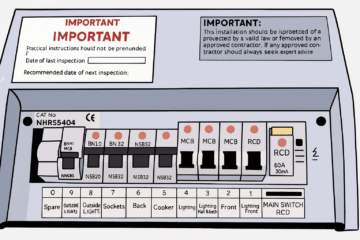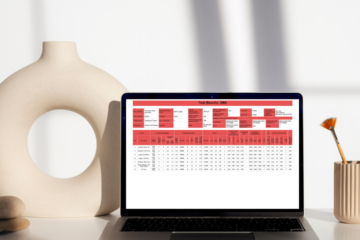If you’re searching for “electrical safety test cost”, you’re probably trying to budget for an Electrical Installation Condition Report (EICR) – also known as fixed wire testing or a full electrical inspection.
For businesses, industrial premises and commercial buildings, this isn’t optional.
Most insurers insist on regular testing, and the Electricity at Work Regulations (EAW) place a legal duty on employers and duty holders to ensure electrical installations are kept in a safe condition.
This guide explains what an electrical safety test involves, the factors that influence the cost, and why arranging a proper survey is essential for compliance and risk management. If you’re not sure how often these tests need to be carried out, see our guide to EICR validity periods.
What Is an Electrical Safety Test?
An electrical safety test (EICR) is a detailed inspection and testing of a property’s distribution boards, wiring, sockets, lighting circuits and other fixed electrical systems.
The inspection looks for:
- C1: Immediate dangers that must be made safe on the spot
- C2: Issues that could become dangerous if left unresolved
- C3: Areas that could be improved
- FI: Anything that requires further investigation
At the end, you’ll receive a written report stating whether the installation is classed as “Satisfactory” or “Unsatisfactory”. If you want help understanding those report codes, we’ve covered them in detail here: EICR Codes Explained – What C1, C2, C3 and FI Mean.
How Much Does an Electrical Safety Test Cost?
The cost of an electrical safety test (EICR) depends on the size, type and complexity of the installation.
As a rough guide:
- Domestic properties: Pricing usually scales with the size of the home. We now treat these as a full‑day booking rather than trying to complete two in one day. This approach allows for a thorough survey with plenty of visual inspections, making sure nothing critical gets missed.
- Commercial and industrial sites: These are typically priced per circuit, with a minimum invoice amount to cover mobilisation, travel and setup. This ensures the test is thorough and cost‑effective, even on smaller installations.
Because every property is different – with variations in the number of circuits, layout, condition of the installation and site access – the best way to get an accurate cost is to ask for a tailored quote or arrange a pre‑inspection survey.
This also ensures you know exactly what’s included and avoids surprises later on.
Why Do Costs Vary?
The key factors that affect cost include:
- Size and type of installation – Larger systems with more circuits take longer to test.
- Number of circuits – Particularly relevant for commercial and industrial premises where testing is priced per circuit.
- Access and working environment – Large or difficult-to-access sites take more time.
- Condition of the installation – Older or heavily modified systems may require additional time and care.
Legal and Insurance Obligations
For commercial and industrial sites, an EICR isn’t just best practice – it’s often mandatory:
- Insurers frequently ask for up‑to‑date test certificates as part of their risk assessments.
- The Electricity at Work Regulations 1989 require installations to be maintained safely – an EICR is the recognised way to prove this.
- Landlords (domestic and commercial) are legally required to carry out testing at least every 5 years in rental properties.
Failing to keep your testing up to date can result in insurance claims being rejected and, in the event of an incident, potential enforcement action.
How Long Does an EICR Take?
- Domestic properties: Typically a full day for a detailed inspection.
- Commercial / industrial sites: The duration depends entirely on the size and complexity – from a few hours for small offices to several days for factories and multi‑unit premises.
Can You Fail an Electrical Safety Test?
Yes. If your report includes a C1, C2, or FI code, it will be marked as Unsatisfactory. You’ll need to arrange remedial work and then receive either a confirmation of remedial works or a new satisfactory report.
Key Takeaways – Electrical Safety Test Cost
- Costs depend on size, number of circuits and complexity.
- Domestic: Full‑day booking for a thorough job.
- Commercial / industrial: Charged per circuit with a minimum invoice value.
- Testing is often required by insurers and law – it’s about compliance, not just cost.
- The only way to know your cost is to request a tailored quote or survey.
Need an Electrical Safety Test?
If you need an EICR for your business, factory, warehouse, or commercial property, get in touch to arrange a survey or request a clear, no‑obligation quote.
Keeping up to date with testing is one of the simplest ways to remain compliant with insurers and the Electricity at Work Regulations.




0 Comments